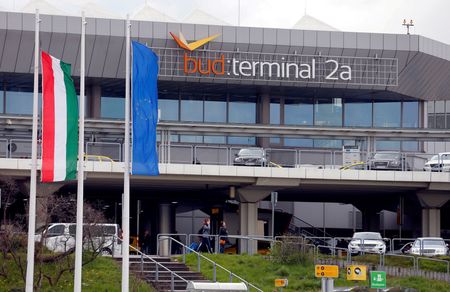
Hungary PM Orban unexpectedly delays deal to buy Budapest Airport

BUDAPEST (Reuters) – Hungary’s government will put off a planned acquisition of Budapest Airport until after next year’s parliamentary elections due to high inflation and volatility in global financial markets, Prime Minister Viktor Orban said on Monday.
Orban, who faces a tough race for re-election, has said for months he wants to see the airport in domestic hands.
Since Orban took power in 2010, his government has boosted Hungarian ownership in strategic sectors such as energy, banking and the media. A consortium led by his government had submitted a revised non-binding offer to buy the airport last month.
“We need to pay attention to the budget deficit,” Orban told a news conference held jointly with visiting French President Emmanuel Macron and leaders of other Central European countries.
“For the time being, I believe it is not reasonable to seal this (airport) deal before the elections.”
In mid-November the owners of Budapest Airport entered into a due diligence process with the government. Local media reported that Hungary had offered 4.44 billion euros ($5 billion) for the airport, a figure that neither its biggest shareholder, AviAlliance GmbH, formerly Hochtief AirPort GmbH, nor the government confirmed.
AviAlliance, which holds a 55.44% stake in the airport, is owned by Canada’s Public Sector Pension Investment Board (PSP Investments).
Orban has boosted government spending sharply in the run-up to the elections, showering the electorate with tax cuts, pension hikes, and a 20% hike in the minimum wage. The government targets a budget deficit of 7.5% of GDP this year.
The governor of the central bank, which is fighting a spike in inflation to 7.4% in November with a series of interest rate hikes, has called for a reduction in spending and has objected to the plan to buy Budapest’s international airport, which he said “posed a serious financial risk”.
The bank’s governor, Gyorgy Matolcsy, is an ally of Orban.

















POST COMMENTS (0)